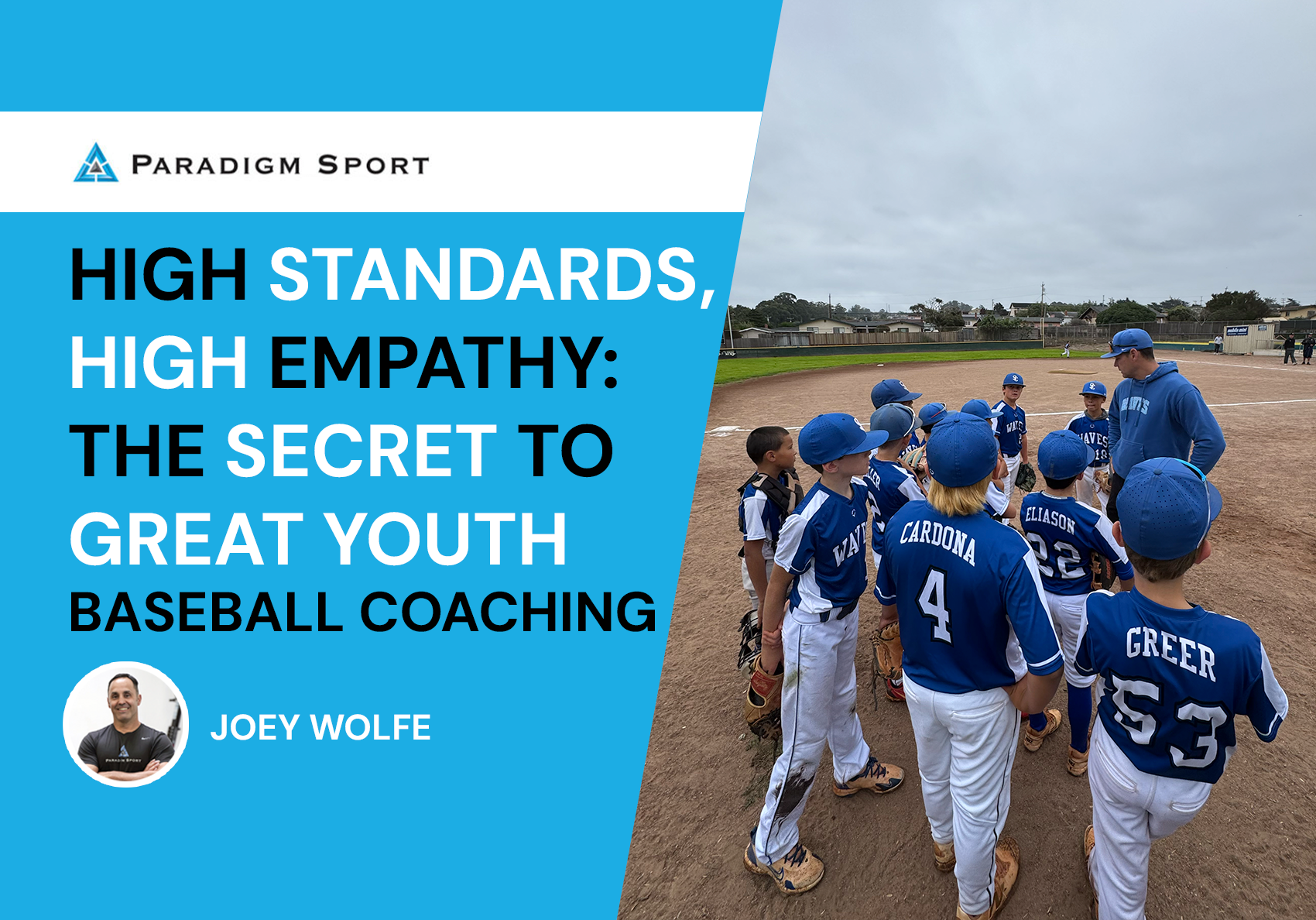
Hey there,
I’ve got to admit something: this past weekend I blew it. Not in the win/loss column, but in how I showed up as a coach for my son Camden’s 11U team.
I forgot, for a moment, just how hard baseball really is.
The Problem: When Coaches Get Condescending
If you’ve been around youth baseball for any length of time, you’ve probably seen it. A coach barking at an 11-year-old like he’s in the big leagues. A sarcastic clap when a kid misses a cutoff. A roll of the eyes when someone strikes out looking.
It’s not a great look. And this weekend, I caught myself slipping into that same trap.
See, I hold high standards. I believe in pushing kids to learn the game the right way. But there’s a line between holding high standards and forgetting that baseball is really hard. Even for us adults who’ve played for decades, the game humbles us. For a kid still figuring out how to tie his cleats without bunny ears? Multiply that by ten.
The Negative Impact: Kids Shut Down
Here’s the thing: when coaches forget to mix high standards with empathy, kids stop learning.
They get tight. They play scared. They start hoping the ball doesn’t come to them. And that’s the exact opposite of what we want. Baseball is supposed to build confidence. To teach kids how to fail, adjust, and try again.
When we coach condescendingly, whether it’s yelling, sarcasm, or just too much frustration, we don’t build ballplayers. We break them down.
The Reality Check I Got This Weekend
Camden made a mistake in the field, one of those “basic” plays I know he can make in his sleep. And instead of calmly helping him reset, I let my frustration show. I didn’t yell, but my body language, my tone, it was enough.
After the game he and I discussed that play and how his lack of focus between pitches is negatively affecting his ability to play to his potential. As I was talking to him tears slowly started coming out of his eyes. My message, as well intended as it was, was causing him shame.
That’s when it hit me: this is my own kid, playing a hard game, trying his best. And I had just made him feel bad about himself for underperforming. I felt terrible for the rest of the day.
The Solution: How Coaches Can Balance Standards + Empathy
So, what do we do when we catch ourselves slipping into the “condescending coach” mode?
Here are three things I’m working on (and I invite you to do the same):
- Remember the Skill Gap
Most kids aren’t going to be very good yet. That’s normal. Baseball takes years of reps, and half the time their bodies are growing faster than their coordination. Accept that they’re learning, not performing. Your job isn’t to demand perfection, it’s to guide them toward progress. - Coach the Mistake, Don’t Punish It
Instead of showing frustration, try to teach. “Hey, next time, think glove side on that play.” Or, “Great hustle, now let’s get the feet set before the throw.” Correct without condemning. - Lead with Empathy
Remember your own days as a kid. How many strikeouts, errors, or bad throws did it take before you got halfway decent? Put yourself back in those Little League cleats. Coaching gets a lot easier when you start from empathy.
Why This Matters
Look, the truth is, very few kids are going to make a living playing this game. But all of them can walk away with lessons that matter: how to handle failure, how to stay confident under pressure, how to keep learning even when it’s tough.
If we coach with high standards and high empathy, we give kids the best shot at falling in love with the game and sticking with it. That’s the win that really matters.
A Word of Encouragement
If you’re reading this and thinking, “Man, I’ve done the same thing,” you’re not alone. Every coach I know has had moments where they forgot how hard the game is. What separates the good coaches from the bad ones isn’t perfection, it’s the willingness to learn and adjust.
Like I said, I’m a work in progress. Maybe you are too. That’s okay. The kids don’t need perfect coaches. They just need coaches who care enough to keep getting better.
Thanks for letting me share this with you. If you’ve got a kid in the game, keep this in your back pocket the next time they boot a grounder or take strike three. Remember: baseball is hard. But with the right kind of coaching, it can also be one of the best teachers in life.
Talk soon,
Joey
P.S. If your son or daughter wants to get stronger, faster, and more confident on the field, we’re offering 1 FREE week of unlimited Performance Training at Paradigm Sport. It’s a great way to help them build the athletic base they need to thrive in baseball, and in every sport they play.
[Click here for High School athletes]
[Click here for Middle School athletes]


